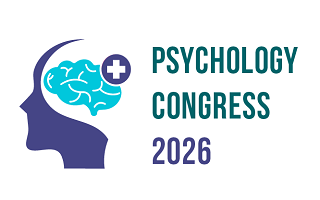3rd International Congress on
Psychology & Behavioral Sciences
March 26-27, 2026 | Osaka, Japan

Address: 1 Chome-9-15 Shinkitano, Yodogawa Ward, Osaka, 532-0025, Japan.
Psychology Congress 2026

Asia University, Taiwan
Abstract:
Approximately 50% of institutional residents exhibit insufficient fluid intake, with dehydration affecting 20-30% among them. Dehydration not only heightens the risk of urinary tract infections, delirium, and impaired wound healing but also accelerates cognitive decline in individuals with dementia and cognitive impairment. To address the complications arising from dehydration, it is essential to develop strategies aimed at effectively increasing fluid intake among institutional residents and reducing associated risks and comorbidities. This study investigates the impact of a "wayfinding" intervention on enhancing fluid intake among institutionalized individuals with dementia. Conducted as a quasi-experiment, the study involved 54 participants with dementia from five long-term care facilities in Taiwan. The experimental group underwent wayfinding intervention three times per week for 8 weeks, while the control group received routine care. Data collection occurred before and immediately after the intervention. ANCOVA analysis was utilized to examine any post-intervention benefits in both groups. Results: Following the intervention, the experimental group demonstrated significant improvements in fluid intake and total liquid consumption compared to the control group. Physiologically, the experimental group also exhibited significantly higher total body water levels than the control group. Conclusion: Wayfinding training enhances fluid intake and total body water among individuals with dementia, empowering them to independently locate and utilize water dispensers.
Biography:
Dr. Li-Chan Lin earned her PhD from the University of Minnesota in 1993 and currently serves as the chair professor at Asia University. Dr. Lin's research focuses on institutional care for the elderly, with a particular emphasis on interventions to address problem behaviors in dementia patients and instrument development. She has authored over 100 papers in reputable journals and served as an esteemed editorial board member.
